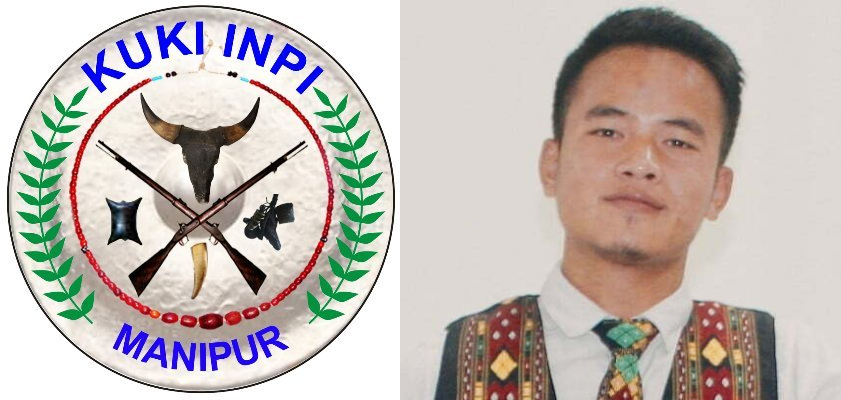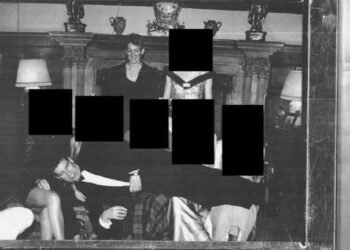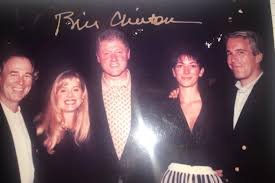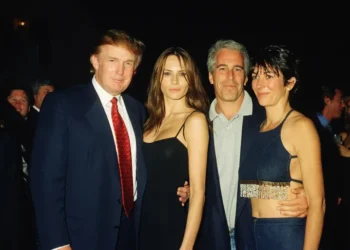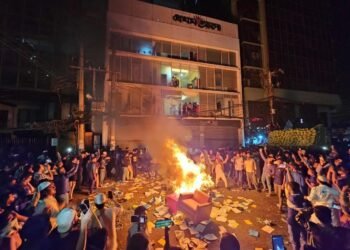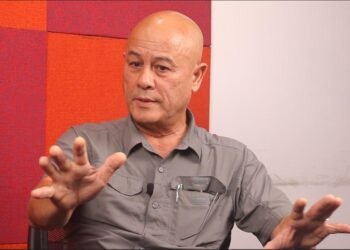As talks to revive a popular government in Manipur gain momentum, the apex Kuki body says its directive is rooted in a moral stand against the same state system it believes failed and targeted the Kuki-Zo people during last year’s ethnic violence.
Navin Upadhyay
July 12, 2025: With Manipur still under President’s Rule and a fresh push by a section of the BJP leadership to restore an elected government gaining momentum, the spotlight has once again turned to the conspicuous absence of the ten Kuki-Zo MLAs from political manoeuvrings in the valley. Their absence is all the more striking because it follows a recent public directive issued by the Kuki Inpi Manipur (KIM), the apex traditional institution representing the Kuki-Zo people.
The directive has emerged at a politically sensitive moment. Many Kuki-Zo groups believe that participating in any government formation would amount to compromising their long-standing demand for a Separate Administration or Union Territory, especially in the wake of last year’s ethnic violence that left thousands displaced and entire villages destroyed. For a large section of the Kuki-Zo population, the very idea of rejoining a state apparatus they hold responsible for their suffering feels like a betrayal.
In an exhaustive interview, Janghaolun Haokip, spokesperson for Kuki Inpi Manipur, says the directive reflects not just political strategy, but a deeper moral and historical response from a community that has endured extreme violence and exclusion.
READ: Manipur Jail Violates Kuki Detainees’ Rights, Alleges KOHUR
“The directive was issued in light of the ongoing political and humanitarian crisis facing the Kuki-Zo people. Participation in any government formation would compromise our community’s unified call for a Separate Administration and constitute a grave betrayal of the people’s trust. In fact, no rational society or community would support the restoration of a system that had marginalised and targeted them.”
Despite questions around whether any of the ten Kuki-Zo MLAs might defy the directive, the KIM spokesperson maintains confidence in their commitment to the community’s collective goals. While KIM is not a statutory body, Haokip emphasizes that its authority stems from representing the people’s will.
“Kuki-Zo MLAs have long upheld the collective sentiments of the people and remain integral to the movement for a Separate Administration. We have full faith in our elected representatives, who have been working tirelessly for the welfare and aspirations of the community. While KIM is not a statutory body, it represents the will and aspirations of the people. Any divergence from this directive would naturally be a matter of public concern and subject to the collective conscience of the people,” he said.
MUST READ: The Mega Tribal Land Grab (2): How Adivasi Fight a Losing battle in Chhattisgarh
Some observers have pointed to the Kuki-Zo Convention (KZC) as the community’s political platform and questioned why KIM, a traditional institution, took the lead in issuing such a political directive. Haokip responds by explaining that the two bodies serve complementary roles in the political life of the Kuki-Zo people.
“KIM and KZC operate within complementary domains. KZC was instituted as a Political Platform for the Kuki-Zo people, while KIM, as a traditional representative institution, has the responsibility to articulate and safeguard long-term political and administrative aspirations. This directive was issued with broad community consensus and in alignment with the collective voice of the Kuki-Zo people,” he said.
The directive has also raised questions about whether KIM had consulted other major civil society groups like the Indigenous Tribal Leaders’ Forum (ITLF) and the Committee on Tribal Unity (COTU) before making the announcement. According to Haokip, while formal unanimity is not always required, there is ongoing coordination across the broader Kuki-Zo leadership ecosystem.
“KIM maintains coordination with key civil society organizations such as ITLF, COTU, and others. While every decision may not require unanimous consensus, major political directives are informed by a shared understanding within the broader Kuki-Zo leadership network.”
On whether KIM consulted with Suspension of Operations (SoO) group leaders—who are currently engaged in talks with the Ministry of Home Affairs (MHA) in Delhi—Haokip concedes that there was no formal consultation in this particular instance. However, he insists that the directive is in line with the broader political narrative the community has presented to the central government.
READ: “They Take Away Our Children” (Part-1): Tibet’s Tragic Preschools
“There was no formal consultation in this specific instance. However, the directive is consistent with the broader political aspirations being presented in dialogues with the Government of India. KIM remains committed to ensuring unity among political, civil, and armed representatives of the community,” he said.
As discussions in the valley continue around reinstating an elected government, KIM’s directive has made one thing clear: without addressing the Kuki-Zo community’s demand for political separation, there can be no return to normalcy. Far from being symbolic, the decision underscores a deeper fracture between the hills and the state’s administrative core—a reminder that any political reconfiguration in Manipur must first grapple with the reality of a people seeking justice, recognition, and autonomy.


